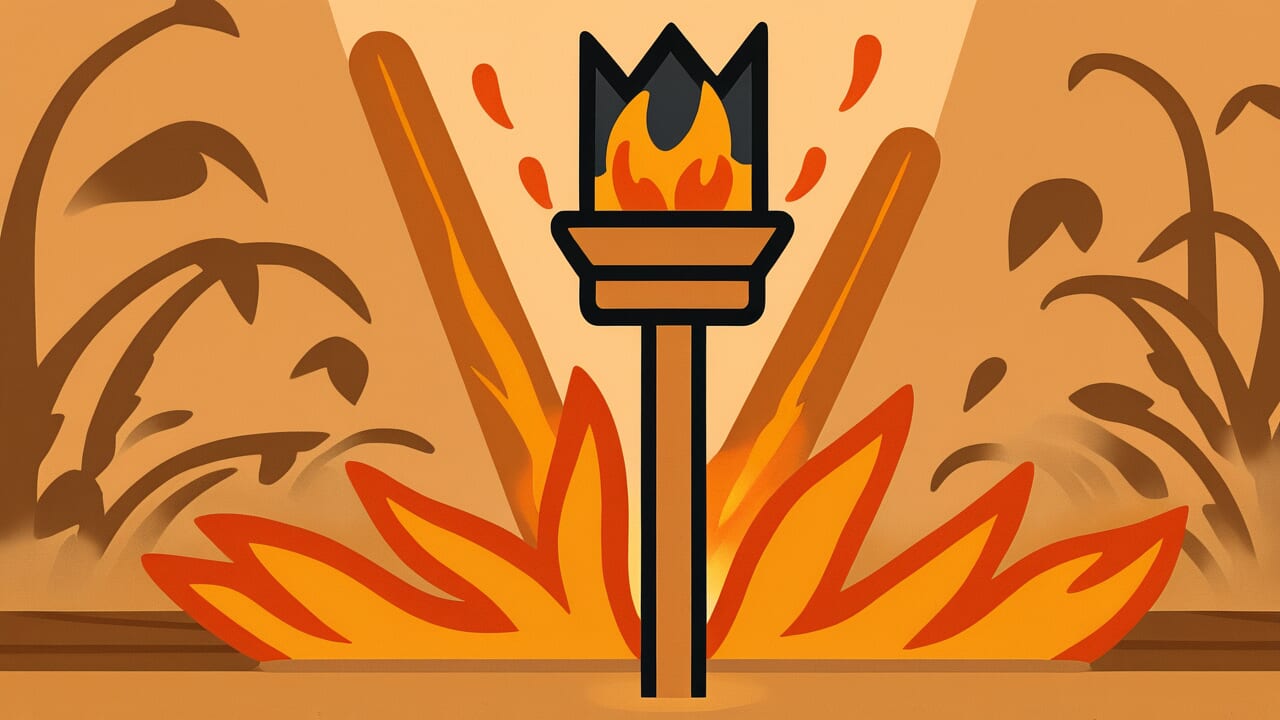How to Read “A burnt stake catches fire easily”
Moe gui ni wa hi ga tsuki yasui
Meaning of “A burnt stake catches fire easily”
“A burnt stake catches fire easily” means that someone who already has experience or basic knowledge in a field can learn the same or related new things much faster than a complete beginner.
This proverb is often used when talking about relearning or trying something again. For example, it describes how someone who took piano lessons as a child can improve much faster than a total beginner when they start playing again as an adult.
It also applies when learning advanced topics in a field where you already have basic knowledge.
People use this expression to show that past experiences are never wasted. Even if there’s a gap in time, the skills and knowledge you once gained remain in your mind and body. They become the foundation for new learning.
Today, as career changes and lifelong learning become more common, this proverb’s meaning grows even more important. It encourages people who use their past experiences to take on new challenges.
Origin and Etymology
No clear written records explain the origin of this proverb. However, we can make interesting observations from how the phrase is constructed.
“Burnt stake” refers to a stake or piece of wood that has already caught fire once. It hasn’t burned completely to ash. Even when it looks extinguished, heat and charred parts still remain inside.
Such wood catches fire much more easily than fresh wood. This is a well-known property.
Japanese people knew this fact from experience through their daily use of fire since ancient times. In lives centered around hearths and cooking stoves using firewood, people sometimes reused wood that had burned once. They directly felt how easily it caught fire again.
When wood burns once, its surface becomes charred. This physical change lowers the ignition point.
From this everyday observation, wise ancestors noticed that the same principle applies to human learning and growth. Once you experience something, that experience stays in your heart. When you encounter a similar situation again, you can understand it immediately.
This universal truth was expressed through the familiar relationship between fire and wood. People have passed down this saying for generations.
Usage Examples
- She studied English when she was a student, so “a burnt stake catches fire easily” – when she started using it at work, she quickly got her feel back
- They say “a burnt stake catches fire easily” for people who played sports before, so maybe I should start again
Universal Wisdom
The proverb “A burnt stake catches fire easily” brilliantly captures the essence of human memory and learning. Our brains and bodies have the quality of never completely forgetting what we once experienced.
This proverb teaches us a hopeful truth: no experience in life is ever wasted. Even if it seems like you failed halfway through or stopped, that experience doesn’t disappear. It accumulates inside you.
It becomes invisible wealth that will surely prove useful someday.
Our ancestors understood well that human growth isn’t linear. Learning has waves. There are periods of stagnation and times of rapid growth. But what matters is that the effort you built up in the past never disappears.
Like the heat remaining inside a burnt stake, it continues to exist even when you can’t see it from the surface.
This proverb has been passed down for so long because it gives people courage to try again. You can restart something you once gave up on. What your past self built up becomes the power that supports your present self.
This universal truth continues to resonate deeply in human hearts, no matter how times change.
When AI Hears This
The chemical reaction of combustion always has an initial barrier called “activation energy.” This is the minimum energy needed to start the reaction. Lighting fresh firewood is difficult because this barrier is high.
However, a stake that has burned once has undergone dramatic changes at the molecular level.
First, the charred surface has become porous. In other words, it’s filled with countless invisible holes. Thanks to these holes, the contact area with oxygen becomes hundreds of times larger than the original wood.
More importantly, carbon exposed to high temperatures once has already lost its impurities and reached a highly pure state. Chemically speaking, this is a “ready state” that reacts easily.
Additionally, even when it looks extinguished, heat still remains inside the stake. This residual heat is decisive. The energy normally needed to raise temperature from room temperature to ignition point is already more than halfway cleared.
It’s like the difference between climbing a mountain from zero versus starting from the fifth station.
This phenomenon also applies to human behavior. For things you’ve experienced once, neural circuits in your brain are already formed. The psychological barrier when restarting is low.
The science of burnt stakes proves the advantage of trying again at the molecular level.
Lessons for Today
What this proverb teaches modern people is the courage to believe in your past self. When we challenge something new, we tend to worry: “Isn’t it too late?” or “I’ve forgotten what I learned before.”
However, the experiences you built up in the past have never disappeared.
In modern society, lifelong learning and career changes have become normal. You don’t need to hesitate about relearning. Rather, you have a huge advantage precisely because of your past experiences.
Don’t fear the gap. Believe in your potential as a “burnt stake.”
Specifically, boldly restart something you learned before. Musical instruments, languages, sports – anything works. You might feel confused at first, but your feel will return surprisingly quickly.
That experience will give you new confidence.
Inside you are countless “burnt stakes” you’ve cultivated throughout your life. They become the spark for new challenges and illuminate your possibilities.



Comments